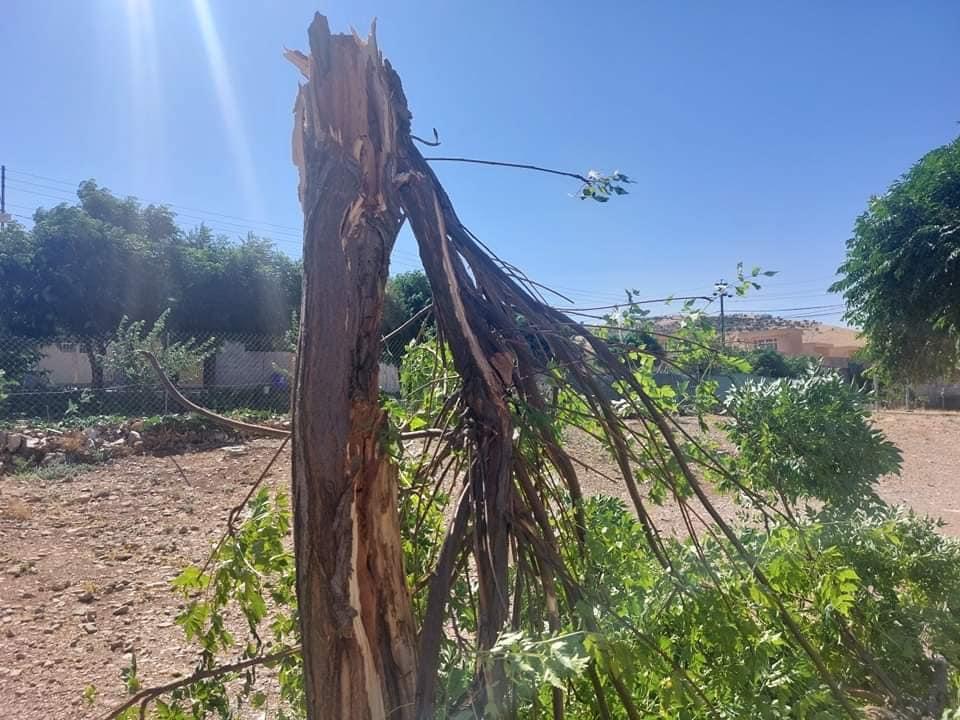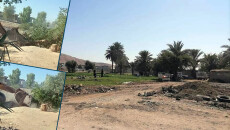The Chinaberry trees planted in most of the streets and parks of Sulaymaniyah Northern Province have not proven to withstand the strong winds throughout the year, so they are to be replaced with mulberry, oleander, and pine trees.
According to (KirkukNow) follow-ups, the strong winds that blew during the past few days, specifically on July 28 and 29, uprooted dozens of trees in the public parks and medians, most of which were Chinaberry trees.
Bahroz Salar, Director of Sulaymaniyah Parks, told (KirkukNow), "The Chinaberry tree quickly grows, so it is not cohesive... These trees are not suitable for the climate of Sulaymaniyah."
The Sulaymaniyah Municipality Media Department's Facebook page published on July 29 photos of trees broken and fallen due to the storms.
Sulaymaniyah Municipality spokesman, Zardasht Rafiq, told (KirkukNow) that "the Chinaberry trees were planted about 15 years ago.
“The municipality stopped planting this type because it does not suit the nature of Sulaymaniyah, it does not last long and does not withstand storms.”
Most of the Chinaberry trees that fell or broke are located near Mount Goyzha. Photo: Falah Ahmed
Chinaberry trees are spread densely in many streets and alleys. Most of the broken trees were in the median strip of Malik Mahmood Circle Street, specifically in the northern and northwestern parts of the city, areas near Mount Goyzha.
The director of Sulaymaniyah Parks says they have focused their attention during the past two months on planting other trees and seedlings such as pine, oleander, olive, and Judas-tree, which live longer and are wind-resistant.
The Chinaberry tree is considered an alien to the nature of the Kurdistan Region of Iraq KRI and needs a large amount of water. It is fast-growing but not solid.
Environmental activist Falah Ahmed explained to KirkukNow that "the Chinaberry tree does not suit the climate and nature of Kurdistan, because it cannot withstand cold, heat and storms. The insects quickly erode tree trunks."
The Chinaberry tree is native to northern India and Southeast Asia. It grows in all types of soil, including sandy soil.
This material was produced as part of the Expanding Role of Women in Covering Environmental Issues program by KirkukNow with the support and funding of the Federal Foreign Office of the Federal Republic of Germany.






